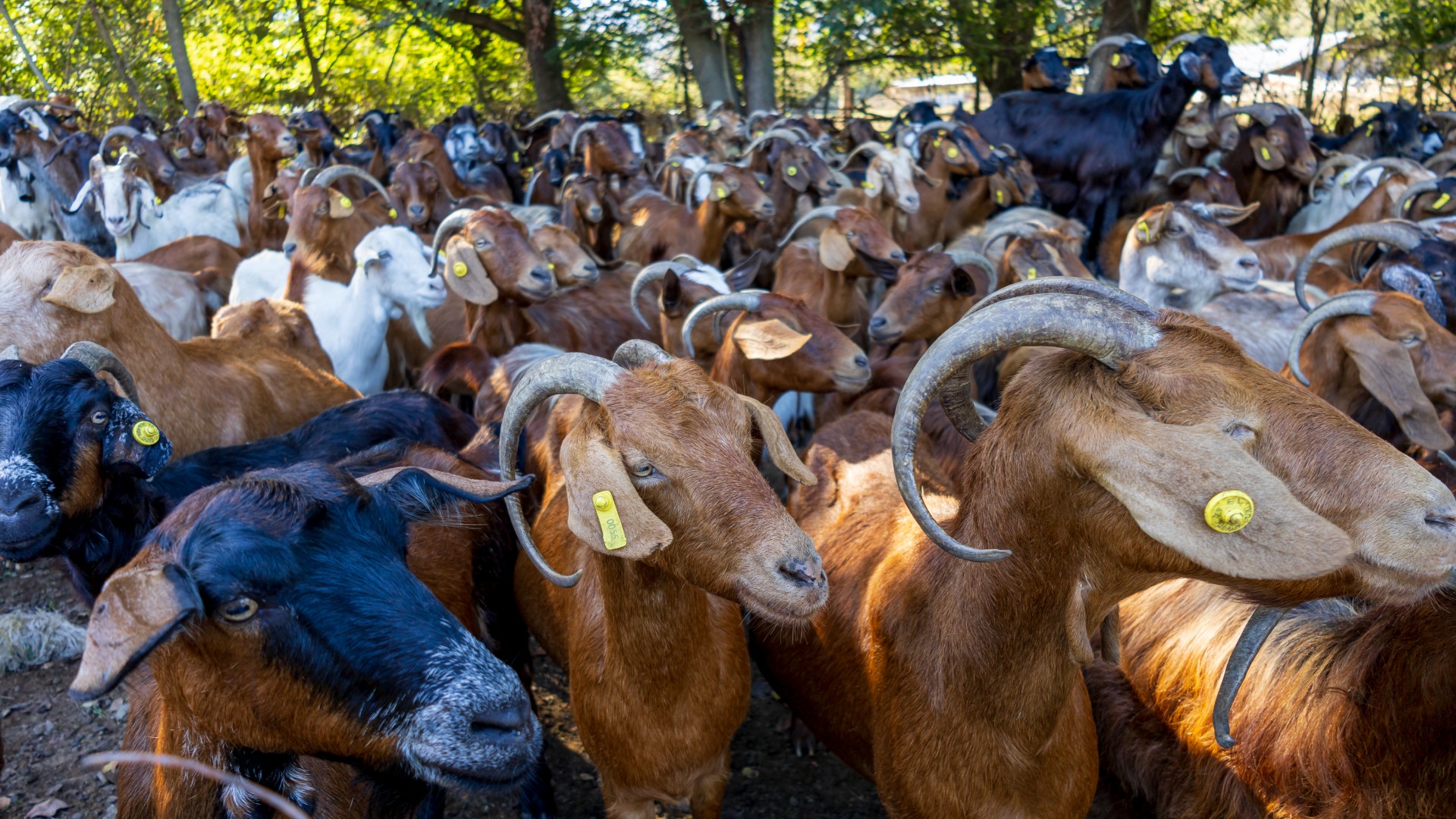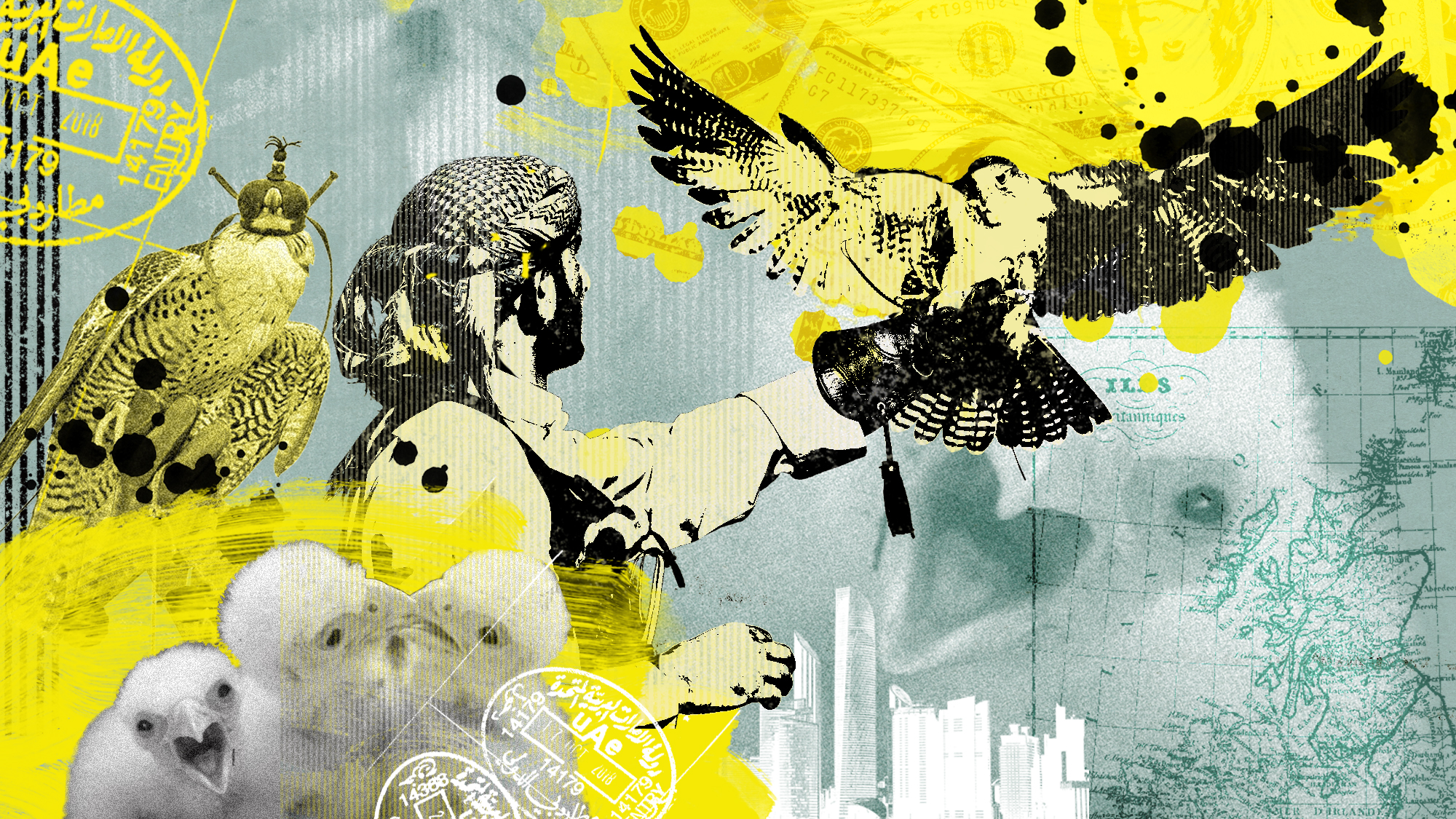Greece's deadly 'goat plague' threatens its trademark feta cheese
About 9,000 animals have already been culled amid outbreak of 'highly contagious' PPR virus

A free daily email with the biggest news stories of the day – and the best features from TheWeek.com
You are now subscribed
Your newsletter sign-up was successful
Feta cheese – Greece's "white gold" – is under threat after a deadly "goat plague" resurfaced in Europe.
The "highly contagious" peste des petits ruminants (PPR) virus was detected for the first time in Greece on 11 July, in the central Thessaly region, but spread quickly across the country and into neighbouring Romania, said Euronews. More than 300,000 animals have since been tested and about 9,000 euthanised.
Greek authorities have temporarily banned the movement or slaughter of sheep and goats to stem the spread, and the EU has adopted "urgent procedures" for Greece and Romania. But the disease poses a "significant threat" to the production of Greece's trademark feta cheese, "a cornerstone of its economy".
The Week
Escape your echo chamber. Get the facts behind the news, plus analysis from multiple perspectives.

Sign up for The Week's Free Newsletters
From our morning news briefing to a weekly Good News Newsletter, get the best of The Week delivered directly to your inbox.
From our morning news briefing to a weekly Good News Newsletter, get the best of The Week delivered directly to your inbox.
The deadly plague
PPR was first discovered in Ivory Coast in 1942, but has since spread around the world to more than 70 countries. It does not affect humans but it can kill between 80% and 100% of infected goats and sheep. The disease causes losses of up to $2.1 billion (£1.65 billion) globally each year, according to estimates by the UN's Food and Agriculture Organization.
"It is known to spread through infected tears, mucus and tiny droplets when animals cough," said Mail Online. Symptoms include fever, discharge from the eyes and nose, and diarrhoea.
Once the virus is detected, "the entire flock is culled, the affected farm is disinfected and authorities test animals in nearby areas", said Reuters – as per EU protocol. The ban on movement means farmers can't buy more animals to "bulk up their flock".
The death toll from the outbreak is "not yet devastating", but the numbers "worry" farmers who are already battling the impacts of climate change, including "blistering heat and erratic rainfall".
A free daily email with the biggest news stories of the day – and the best features from TheWeek.com
Many are still struggling with the consequences of record storms last September, which flooded about 35,000 acres in Thessaly – a region that accounts for 25% of domestic agricultural produce. About 30,000 farmers were affected.
"We were talking about a possible crisis before the crisis," said one dairy farmer in Thessaly, who lost nearly all her 800 animals and equipment in the floods. "We cannot bear the slightest damage for a second year in a row."
The agriculture ministry said the ban on movement and slaughter was preventative, aimed at "limiting the spread and eradication of the disease". It will last until Sunday.
The risk to Greek feta
Industry officials "sought to dispel fears" that feta – the "mainstay of the Mediterranean diet" – could be "imperilled", said The Guardian.
Feta cheese is undoubtedly a "major economic driver" for Greece, said Georgios Stratakos, a senior agriculture ministry official. About 40% of Greek feta is made from milk produced in Thessaly.
The outbreak "won't endanger feta exports", said Christos Tsopanos, a senior figure at the Association of Greek Livestock (SEK). "Our country has 14 million goats and sheep, more than any other [EU] state." (According to Eurostat, last updated in 2022, the EU has about 11 million goats in total. But Greece did boast the highest EU numbers: about 25% of the bloc's total goat population.) Romania and Greece have the second and third largest sheep herds in the EU behind Spain, with 10.2 and 7.3 million respectively, according to the most recent figures.
The outbreak is only the second of its kind ever recorded in the EU; the first was in 2018 in Bulgaria. But there have also been outbreaks in Turkey and Georgia. The Greek agriculture ministry said an investigation was under way to determine the source of the outbreak, but did not rule out "suspicious imports" from abroad. Farmers believe PPR was brought to Greece via animals from Romania, said Dimitris Moskos, vice-president of the Association of Greek Livestock.
At the moment, the risk of PPR reaching the UK is "negligible", according to an assessment by the Department for Environment, Food and Rural Affairs (Defra) quoted in Mail Online. Importing live animals from Greece was banned after a separate disease – goat pox – was detected last October.
But cheese and milk are still being imported from Greece, including nearly 4,000 tonnes between 1 May and 12 July. About 1.6% of those products were unpasteurised; i.e. they have not been heat-treated to kill pathogens. "We will continue to monitor the situation, as this is an important exotic disease which will be a concern for the EU," said Defra.
Harriet Marsden is a senior staff writer and podcast panellist for The Week, covering world news and writing the weekly Global Digest newsletter. Before joining the site in 2023, she was a freelance journalist for seven years, working for The Guardian, The Times and The Independent among others, and regularly appearing on radio shows. In 2021, she was awarded the “journalist-at-large” fellowship by the Local Trust charity, and spent a year travelling independently to some of England’s most deprived areas to write about community activism. She has a master’s in international journalism from City University, and has also worked in Bolivia, Colombia and Spain.
-
 The ‘ravenous’ demand for Cornish minerals
The ‘ravenous’ demand for Cornish mineralsUnder the Radar Growing need for critical minerals to power tech has intensified ‘appetite’ for lithium, which could be a ‘huge boon’ for local economy
-
 Why are election experts taking Trump’s midterm threats seriously?
Why are election experts taking Trump’s midterm threats seriously?IN THE SPOTLIGHT As the president muses about polling place deployments and a centralized electoral system aimed at one-party control, lawmakers are taking this administration at its word
-
 ‘Restaurateurs have become millionaires’
‘Restaurateurs have become millionaires’Instant Opinion Opinion, comment and editorials of the day
-
 As temperatures rise, US incomes fall
As temperatures rise, US incomes fallUnder the radar Elevated temperatures are capable of affecting the entire economy
-
 Climate change could lead to a reptile ‘sexpocalypse’
Climate change could lead to a reptile ‘sexpocalypse’Under the radar The gender gap has hit the animal kingdom
-
 Why scientists want to create self-fertilizing crops
Why scientists want to create self-fertilizing cropsUnder the radar Nutrients without the negatives
-
 The former largest iceberg is turning blue. It’s a bad sign.
The former largest iceberg is turning blue. It’s a bad sign.Under the radar It is quickly melting away
-
 Why the Middle East is obsessed with falcons
Why the Middle East is obsessed with falconsUnder the Radar Popularity of the birds of prey has been ‘soaring’ despite doubts over the legality of sourcing and concerns for animal welfare
-
 How drones detected a deadly threat to Arctic whales
How drones detected a deadly threat to Arctic whalesUnder the radar Monitoring the sea in the air
-
 ‘Jumping genes’: how polar bears are rewiring their DNA to survive the warming Arctic
‘Jumping genes’: how polar bears are rewiring their DNA to survive the warming ArcticUnder the radar The species is adapting to warmer temperatures
-
 Crest falling: Mount Rainier and 4 other mountains are losing height
Crest falling: Mount Rainier and 4 other mountains are losing heightUnder the radar Its peak elevation is approximately 20 feet lower than it once was